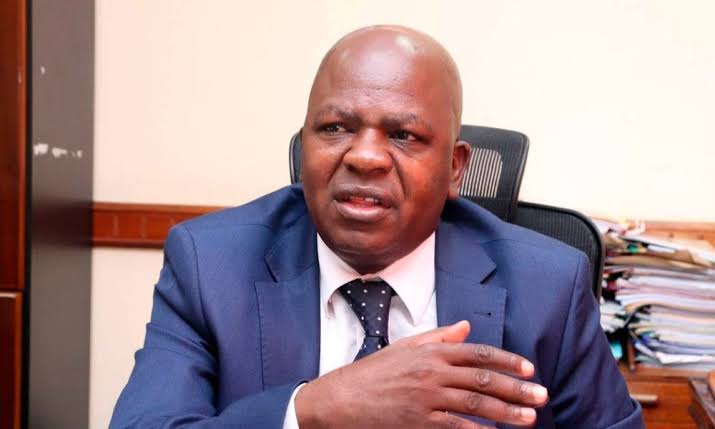The United Democratic Alliance (UDA) is currently embroiled in severe internal conflicts and power struggles, eerily reminiscent of the turmoil that led to the disintegration of the Jubilee Party.
At the heart of these disputes is Secretary General Cleophas Malala, whose controversial actions have sparked division and animosity within the party.
Political analysts weigh in on the implications of this crisis for UDA’s future.

Political Analyst Perspectives
Dr. Jane Mwangi, Political Scientist at the University of Nairobi:
“Malala’s decision to issue warnings to prominent Cabinet Secretaries and politicians aligned with President William Ruto and Deputy President Rigathi Gachagua has backfired spectacularly.
Instead of asserting his authority, Malala’s move has deepened existing rifts within the party.
This kind of internal conflict is particularly dangerous for a party like UDA, which is still relatively young and needs unity to solidify its position in the political landscape.”
David Njogu, Senior Political Analyst:

“The allegations of financial misconduct against Malala are not just about money; they reflect a broader issue of trust and integrity within UDA’s leadership.
By delaying salary payments and allegedly using financial control to intimidate staff, Malala has fostered an atmosphere of fear and frustration.
This is reminiscent of the internal strife that crippled the Jubilee Party. If UDA doesn’t address these issues promptly, it risks a similar fate.”
Prof. Michael Otieno, Expert in Political Ethics:

“Malala’s approach to leadership has alienated not only the party’s staff but also key figures within UDA. When senior members like Mutahi Kahiga, Oscar Sudi, and Gathoni Wamuchomba openly criticize his competence and call for his removal, it signals a serious legitimacy crisis.
For a party to survive such internal strife, it must have a cohesive leadership that can address and reconcile differences, not exacerbate them.”
Internal Strife and Financial Misconduct
The crux of the controversy revolves around allegations that Malala has overstepped his mandate, abusing his power as a mandatory signatory on the party’s bank account.
Reports indicate that he has deliberately delayed salary payments, using this tactic to control and intimidate staff.

These delays have caused significant hardship, with many employees now burdened with debts despite their dedication to the party.
An agreement for staff salaries to be processed via a standing order from the bank required Malala’s authorization. However, insiders claim he engaged in unnecessary delays and sideshows, fostering an atmosphere of frustration and fear. Complaints have mounted, with staff alleging that Malala signs checks for salaries and per diems based on his whims, exacerbating their financial instability.
Criticism from Party Stalwarts
Malala’s handling of these internal disputes has drawn sharp criticism from key UDA figures. Mutahi Kahiga publicly described Malala as “a square peg in a round hole” and called for his removal in the next UDA elections.
Kapsabet MP Oscar Sudi referred to Malala as “an elevated MCA trying to be our Raphael Tuju,” while Wamuchomba called him a “political loser and UDA intruder” who lacks understanding of the party’s campaign promises.
Lessons from Jubilee’s Downfall
The current turmoil within UDA mirrors the infighting that led to the Jubilee Party’s downfall.
Jubilee’s internal wars necessitated seeking opposition support to pass crucial legislation, and UDA might find itself in a similar quagmire if factionalism persists.
Dr. John Kamau, Historian and Political Commentator:
“The situation within UDA is a stark reminder of the importance of cohesive leadership. Jubilee’s downfall was precipitated by internal power struggles and a lack of unified vision. If UDA wants to avoid a similar fate, it must address its internal issues decisively. This means resolving leadership disputes and focusing on the party’s mission and promises to its constituents.”
Conclusion
The ongoing conflicts within UDA highlight the complexities of managing party dynamics amidst power struggles.
Malala’s confrontational approach risks deepening the rifts within the party, potentially leading to its fragmentation.
To avoid the fate of Jubilee, UDA must act swiftly and decisively, ensuring that leadership disputes do not overshadow the party’s mission.
The party’s ability to navigate this crisis will determine its future stability and effectiveness in the Kenyan political arena.



